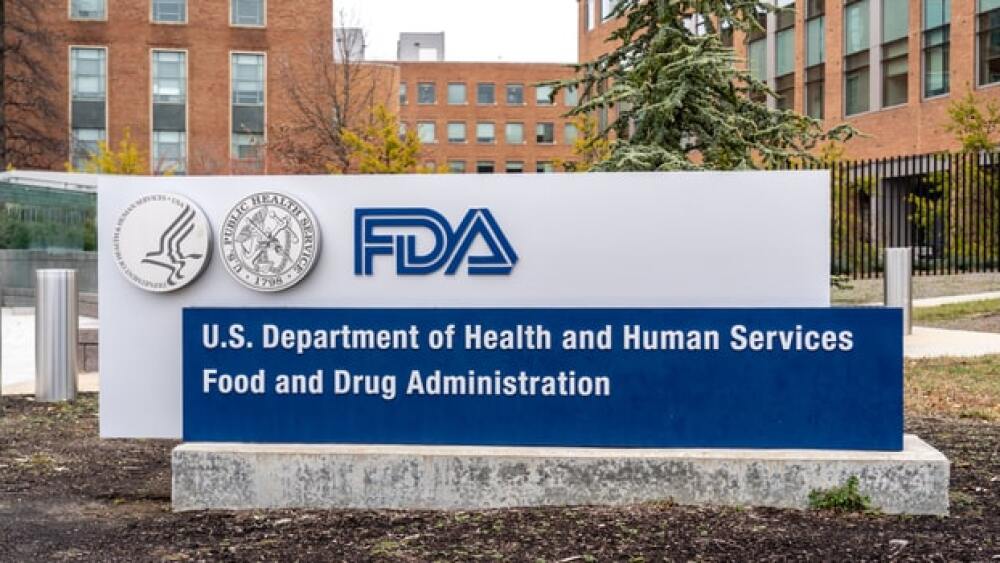Ocugen, Inc. today announced that the FDA has granted RMAT designation to Ocugen’s investigational product OCU400 for the treatment of retinitis pigmentosa (RP) associated with RHO mutations.
- RMAT designation intended to help expedite development of new regenerative medicines
MALVERN, Pa., Dec. 19, 2023 (GLOBE NEWSWIRE) --Ocugen, Inc. (Ocugen or the Company) (NASDAQ: OCGN), a biotechnology company focused on discovering, developing, and commercializing novel gene and cell therapies and vaccines, today announced that the FDA has granted RMAT designation to Ocugen’s investigational product OCU400 for the treatment of retinitis pigmentosa (RP) associated with RHO mutations.
“RMAT designation is a significant accomplishment for the OCU400 clinical development program, as it validates the potential for our game-changing gene therapy approach to fulfill an unmet medical need for people who are facing blindness due to RP,” said Arun Upadhyay, PhD, Chief Scientific Officer and Head of R&D at Ocugen. “FDA’s decision also reinforces the sense of urgency to bring a therapeutic option to these patients.”
RMAT designation for OCU400 was based on preliminary clinical data supporting the maintenance and improvement of visual acuity and function in RP patients in the OCU400 -101 Phase 1/2 clinical trial as measured by Best Corrected Visual Acuity (BCVA), Low Luminance Visual Acuity (LLVA), and Multi-Luminance Mobility Test (MLMT).
RMAT designation is part of the 21st Century Cures Act. The program was created to expedite the development and review of regenerative medicine therapies intended to treat, modify, reverse, or cure a serious condition. Receiving RMAT designation offers sponsor companies all the benefits of the fast track and breakthrough therapy designation programs, including early interactions with the FDA. Ocugen is working with the FDA to finalize the Phase 3 protocol necessary to advance the clinical development for OCU400 to support an application for marketing authorization.
Current data support the gene-agnostic mechanism of action for OCU400, which suggests that it may be able to provide treatment benefit to a broader group of RP and Leber congenital amaurosis (LCA) patients. Ocugen intends to submit additional efficacy and safety data for OCU400 in RP and LCA patients to the FDA in the future to potentially expand this RMAT designation to broader RP and LCA patient populations.
RHO mutations affect more than 10,000 of the 110,000 people in the United States diagnosed with RP. In the latest clinical study update from the Phase 1/2 trial of OCU400, 86% (6/7) of RHO mutation subjects experienced either stabilization or improvement in MLMT scores from baseline, among which 29% (2/7) demonstrated 3 Lux luminance level improvement. There are currently no treatment options available for RP patients with RHO gene mutations.
OCU400 represents Ocugen’s modifier gene therapy approach, which is based on Nuclear Hormone Receptors (NHRs) that regulate diverse physiological functions, such as homeostasis, reproduction, development, and metabolism to potentially improve retinal health and function.
About Ocugen, Inc.
Ocugen, Inc. is a biotechnology company focused on discovering, developing, and commercializing novel gene and cell therapies and vaccines that improve health and offer hope for patients across the globe. We are making an impact on patient’s lives through courageous innovation—forging new scientific paths that harness our unique intellectual and human capital. Our breakthrough modifier gene therapy platform has the potential to treat multiple retinal diseases with a single product, and we are advancing research in infectious diseases to support public health and orthopedic diseases to address unmet medical needs. Discover more at www.ocugen.com and follow us on X and LinkedIn.
Cautionary Note on Forward-Looking Statements
This press release contains forward-looking statements within the meaning of The Private Securities Litigation Reform Act of 1995, including, but not limited to, statements regarding qualitative assessments of available data, potential benefits, expectations for ongoing clinical trials, the expected benefits of RMAT designation, and anticipated regulatory interactions, which are subject to risks and uncertainties. We may, in some cases, use terms such as “predicts,” “believes,” “potential,” “proposed,” “continue,” “estimates,” “anticipates,” “expects,” “plans,” “intends,” “may,” “could,” “might,” “will,” “should,” or other words that convey uncertainty of future events or outcomes to identify these forward-looking statements. Such statements are subject to numerous important factors, risks, and uncertainties that may cause actual events or results to differ materially from our current expectations, including, but not limited to, the risks that preliminary, interim and top-line clinical trial results may not be indicative of, and may differ from, final clinical data; that unfavorable new clinical trial data may emerge in ongoing clinical trials or through further analyses of existing clinical trial data; that earlier non-clinical and clinical data and testing of may not be predictive of the results or success of later clinical trials; and that that clinical trial data are subject to differing interpretations and assessments, including by regulatory authorities. These and other risks and uncertainties are more fully described in our periodic filings with the Securities and Exchange Commission (SEC), including the risk factors described in the section entitled “Risk Factors” in the quarterly and annual reports that we file with the SEC. Any forward-looking statements that we make in this press release speak only as of the date of this press release. Except as required by law, we assume no obligation to update forward-looking statements contained in this press release whether as a result of new information, future events, or otherwise, after the date of this press release.
Contact:
Tiffany Hamilton
Head of Communications
IR@ocugen.com






